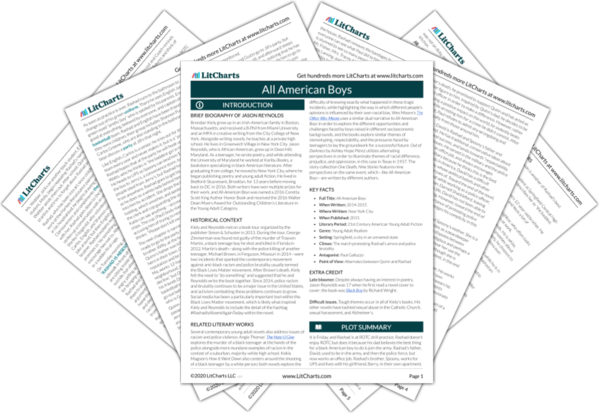AI ToolsNew
Tools to make learning and teaching easier
|
Previous
4. Saturday: Quinn
|
All American Boys: 5. Sunday: Rashad Summary & Analysis |
Next
6. Sunday: Quinn
|


Upgrade to unlock the analysis and theme tracking for all of All American BoysAll American Boys!
Get LitCharts A+